It’s an unfashionable thought, but having spent many hours in the university sports hall where constituency votes for Boris Johnson and John McDonnell were counted, I feel freshly in love with democracy. There they all were, local councillors and party workers from across the spectrum; campaigners pursuing personal crusades, from animal rights to the way fathers are treated by the courts; eccentrics dressed as Time Lords. In the hot throng, there were extremists and a few who seemed frankly mad. But most were genial, thoughtful, balanced people giving of their free time to make this a slightly better country. Stuck in Westminster during relentless parliamentary crises, it’s easy to lose sight of just how energising real democracy is. I came home with my cynicism scrubbed off, and exhausted-refreshed.
However, I hadn’t seen the size of the Tory majority coming. All through the campaign, I’d felt instinctively we were heading for a Boris Johnson victory, but with a modest Tory majority. Thinking back, I’m sure I was over-influenced by social media. Conservative messages on Twitter and Facebook seemed unimaginative and repetitive, while the left was ingenious, starry, witty and emotional. But more than that, I think the online campaign made screen junkies too easily impressed by strange, vivid, eye-catching episodes, which passed most normal people by.
Many of them were to do with the Prime Minister himself: briefly pocketing a reporter’s phone to avoid an embarrassing picture; declining to be interviewed by my colleague Andrew Neil; and apparently hiding in a fridge. In each case, addicted Twitterati thought them emblematic, even turning-point truths, and assumed that the nation was transfixed. But millions of voters probably found them trivial, or smiled briefly — if they noticed them at all. They were thinking about the simpler messages Twitter passed over. One of the common qualities among journalists is a short attention span. During this election, it became for us a crippling disability.
If that’s true, though, don’t the party campaigns, so focused on bogus publicity moments, also have a lot to answer for? I would imagine that being prime minister is quite an important and testing job. So, was it really necessary for Conservative Central Office to send Boris Johnson to wrangle heifers in Aberdeenshire, dangle codfish in front of photographers and deliver early-morning milk to bleary, pre-prepped householders? Really, what was that all about? Did any of the frantic criss-crossing of the country, the bogus rallies and media scrums, change any minds at all? Or was it, perhaps, displacement activity for a political class sitting nervously in the waiting room?
Judging by briefings to newspapers, Boris Johnson now wants to come after the BBC, first by turning the licence fee into a voluntary contribution. I hope he doesn’t. And if he does, I hope it’s not because I frequently interrupted him the last time he was interviewed on my show. No, I don’t think it was a particularly elegant encounter and I wasn’t happy with it afterwards; but when politicians insist on delivering the same stump speech in response to almost every question, people in my position have a brutal choice. We either lie down quietly on the floor and allow ourselves to be jumped on (painful: Mr Johnson is rather large), or we have to try, somehow, to stop the verbal torrent and get some answers to specific questions, which can get irritatingly tetchy.
By far the best outcome is for the political guest to arrive with interesting things to say, and confident enough to answer the questions put. Michael Gove, for instance, is rather good at this. I think he’s spotted that for a TV interviewer, there are few things more disconcerting than asking a long, meticulously prepared question, only to get the answer ‘no’. Or, alternatively, after the briefest of pauses, ‘yes’. Another man I’d single out is John McDonnell, the shadow chancellor. Like his mate Jeremy Corbyn, he is now close to becoming an un-person after huge defeat. But I take as I find. And I have always found him attentive, polite and prepared to answer hard questions in clear language. Real interviews are much more fun for those taking part, and for our viewers. More, please.
At the funeral of Richard Lindley — one of the BBC’s most glamorous and admired foreign correspondents and a punctilious, self-deprecating, truth-seeking man — we were treated to moving memories from colleagues, neighbours such as Michael Palin, and his fabulous widow, Carole Stone. But St Martin-in-the-Fields also rang out to that modern rarity, a properly fiery sermon. The Revd Dr Sam Wells took as his theme: ‘There used to be a profession called journalism.’ On the day before polling day, he made many of us reflect and even slightly quake.
My later-life love affair with our labrador-retriever cross puppy, Baxter, continues. He has noticed the election fleetingly, as he looks up from a devastated bone or carrot. He seems interested in Johnson’s Dilyn. It’s impertinent for journalists to offer advice to politicians, but living your life alongside a young canine with a strong personality is excellent for mental wellbeing. Dilyn is by no means the least important member of the PM’s team.
Got something to add? Join the discussion and comment below.
Get 10 issues for just $10
Subscribe to The Spectator Australia today for the next 10 magazine issues, plus full online access, for just $10.
You might disagree with half of it, but you’ll enjoy reading all of it. Try your first month for free, then just $2 a week for the remainder of your first year.

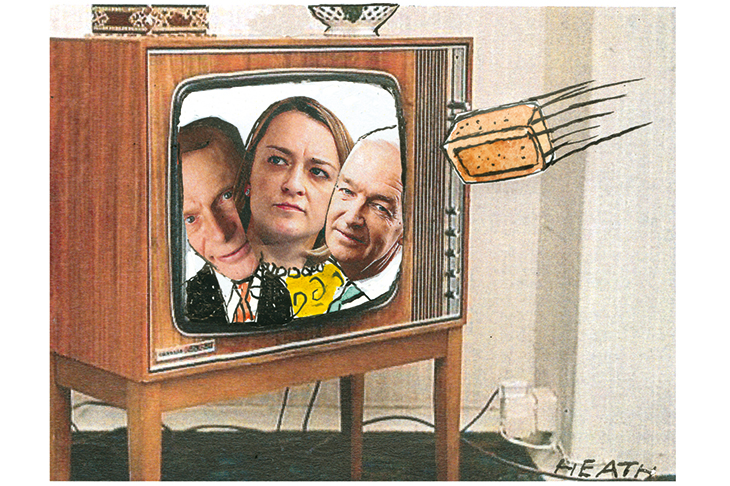
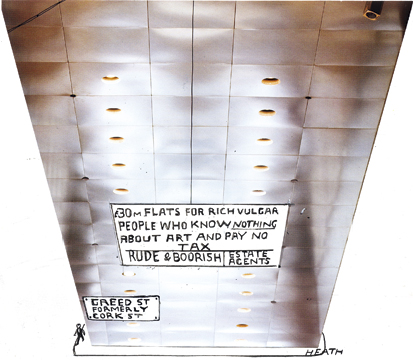

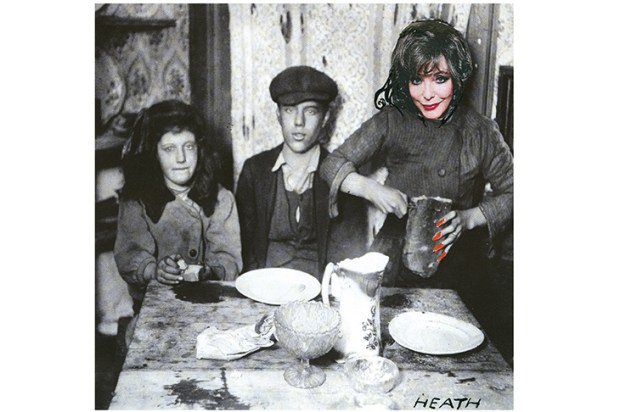
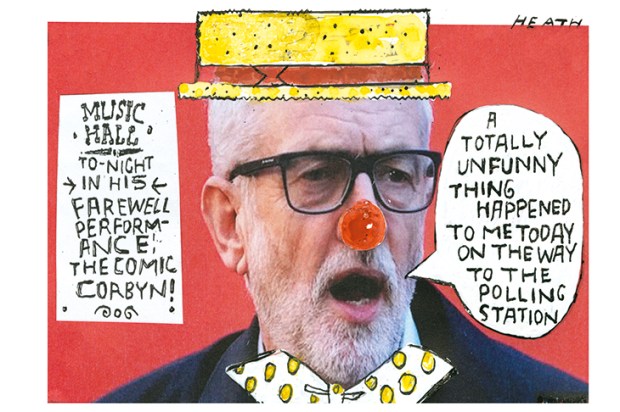
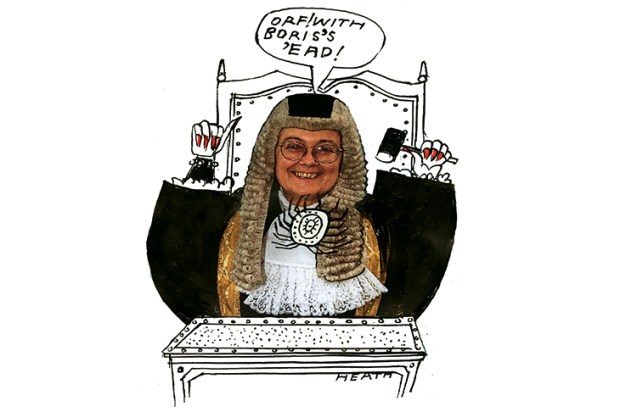
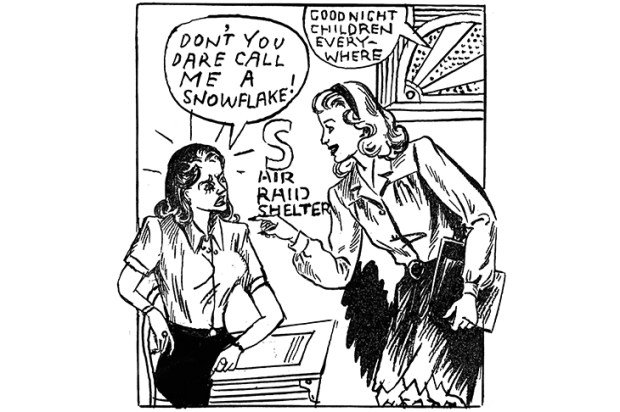






Comments
Don't miss out
Join the conversation with other Spectator Australia readers. Subscribe to leave a comment.
SUBSCRIBEAlready a subscriber? Log in